Whose life is it anyway? Novelists have their say on cultural appropriation

Jonathan Franzen claimed he wont write about race because of limited firsthand experience, while Lionel Shriver hopes objection to cultural appropriation is a passing fad. So should there be boundaries on what a novelist can write about?

Hari Kunzru
Clearly, if writers were barred from creating characters with attributes that we do not own (gender, ethnicity, sexual orientation, and so on), fiction would be impossible. Stories would be peopled by clones of the author. Since trespassing into otherness is a foundation of the novelists work, should we restrict ourselves in some way, so as to avoid doing violence to those who identify with our characters? The injunction to refrain from cultural appropriation sounds like a call for censorship, or at best a warning to self-censor, an infringement of the creative liberty to which so many surprising people profess themselves attached.
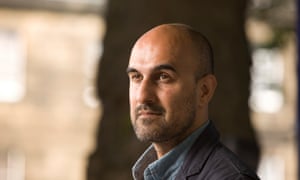
It is true that the politics of offence are used to shut down dissident voices of all kinds, frequently in minority communities, and the understanding of culture as a type of property to which ownership can be definitively assigned is, at the very least, problematic. Should the artist go forth boldly, without fear? Of course, but he or she should also tread with humility. Note that I do not say, with care. I dont believe any subject matter should a priori be off limits to anyone, or that harm necessarily flows from the kind of ventriloquism that all novelists perform. Quite the opposite. Attempting to think ones way into other subjectivities, other experiences, is an act of ethical urgency. For those who have never experienced the luxury of normativity, the warm and fuzzy feeling of being the worlds default setting, humility in the face of otherness seems like a minimal demand. Yet it appears that for some, the call to listen before speaking, to refrain from asserting immediate authority, is so unfamiliar that it feels outrageous. Im being silenced! My freedom is being abridged! Norm is unaccustomed to humility because he has grown up as master of the house. All the hats are his to wear. For the deviant others, who came in by the kitchen door, it has always been expected, even demanded.
Good writers transgress without transgressing, in part because they are humble about what they do not know. They treat their own experience of the world as provisional. They do not presume. They respect people, not by leaving them alone in the inviolability of their cultural authenticity, but by becoming involved with them. They research. They engage in reciprocal relationships. It does not seem like a particular infringement of liberty to pass through the world without being its owner, unless someone else is continually asserting property rights over the ground beneath your feet. The panicked tone of the accusations of censorship leads me to suspect that what is being asserted has little to do with artistic freedom per se, and everything to do with a bitter fight to retain normative status, and the privileges that flow from it. The solution is simple, my fearful friends. Give up. Accept that some things are not for you, and others are not about you. You will find you have lost nothing. It may even feel like a weight off your shoulders. Put down that burden and pull up a chair. You might hear something you havent heard before. You will, at least, hear some new stories.
Kamila Shamsie
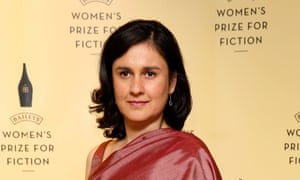
One of the novels I love is Peter Hobbss In the Orchard, the Swallows. Its set entirely in the north of Pakistan and is beautiful and true (a better word than authentic). If anyone tried to dispute Hobbss right to have written that book (and I should say, every Pakistani I know who has read it has expressed only admiration), I would be the first in line to defend him, and it. But the point about the book is that its wonderfully and sensitively written; it has no interest in peddling stereotypes, or making great claims about the place in which its located; there is no whiff of arrogance or entitlement. I dont know what went on in Hobbss mind when he wrote it but I feel fairly confident it wasnt: How dare anyone dispute my right to write this?
In fact, if you do start with an attitude that fails to understand that there are very powerful reasons for people to dispute your right to tell a story reasons that stem from historical, political or social imbalances, youve already failed to understand the place and people who you purport to want to write about. Thats a pretty lousy beginning, and I wouldnt want to read the fiction that comes out of it. Far better to understand the reasons, and perhaps even use those reasons as a way into character and story.
So by all means, lets have a broadening of the imagination. That doesnt mean you have to leave the patch of ground on which you live but it would be helpful if you looked at who else is on that patch of ground with you. To continually return to the same subset of humanity, and declare that there is no one else who imaginatively engages you or who you know how to imaginatively engage with, strikes me as one of the most dispiriting things a writer can say.
In short: dont set boundaries around your imagination. But dont be lazy or presumptuous in your writing either. Not for reasons of political correctness, but for reasons of good fiction.
Aminatta Forna
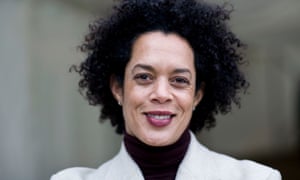
Literature is an imaginative art. To suggest that a writer cannot depict characters unlike themself is patently absurd. Books would have to be peopled with characters exactly like the author. In my case, they would all be Scottish/Sierra Leonian women, who would be required to travel to each others countries (presumably Scotland and Sierra Leone), fall in love with each other, betray each other, befriend each other and occasionally shoot each other.
Lionel Shrivers speech was crass and unhelpful; she turned an important creative question into whites versus chippy minorities. Yet writers from minority groups have spoken out at length about being expected only to address certain subjects. My last book was set in Croatia. In the year of publication I answered the question: Why Croatia? so many times I began simply to answer: Why not?
Jonathan Franzens remarks about not being able to write a black woman character because he has never been in love with a black woman made me squirm. He said he has to have experience of loving a category of person before he can write about them. Thats hard to believe for all sorts of practical reasons, but beyond that, writing is about imagining how others think and feel and how that informs their behaviour; it is about offering a different way of seeing and in so doing it creates empathy. I tell my creative writing students: Dont write what you know, write what you want to understand. I write from a place of deep curiosity about the world.
Every writer is free to write about who and what they want, but that does not mean the work cannot be critiqued. People who belong to minority groups have had to live with limiting, irritating and insulting portrayals all our lives, as well as always dying before the end of the movie. I have thrown aside many modern novels because a white writers purpose in including a character of colour has been merely to make a point about race or reflect a white characters value system. Its bad writing, plain and simple. Shriver wants to be given points for trying. Well, I might do that for my undergraduates, but I wont do it for a published author. Sorry.
Chris Cleave
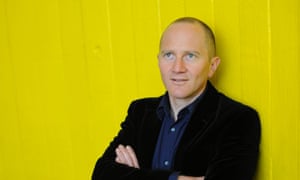
Cultural appropriation is a valid concern to raise, and Ive long been on record as respecting those who raise it. I do write across boundaries, though. While actively soliciting peoples right to reply (Ive published all responses, good and bad, on my website for the last decade), I do my best, when I write, to be everyone.
In my novels I cross boundaries of gender, ethnicity, nationality, sexuality and class. Thats the best way I know to tell stories about our world, where those faultlines define our society. I show scenes from both sides, using one character to view another askance. Why? Because my characters eyes can be sharper than mine, since my own identity has no lock on a unitary or objective way of seeing things.
I do my research. Sometimes as when interviewing refugees and torture survivors Ive learned things I wish I could unlearn. The violence of the worlds true stories can crack you open. You lose the shape you were moulded in. You take on other forms. How should one judge the healthiness of a writer like that, an empathist, a broken vessel? By the temperature of their work, I think. By its willingness to surrender heat to light.
A good novelist is a good observer everything else is just style. A writer must be alive to what goes said and unsaid in the world, making themself small until only the reader is reflected in the work. A well-crafted novel is a mirror, and as a reader I dont mind where the glass was made or how it got its silver. I require only that its reflection is fair.
Readers are mostly ignored in this debate, but the worldly and widely read reader has a hinterland, is quick to spot an agenda and is willing to call out fakes. Readers are more heterogeneous than writers will ever be, and in their multiplicity a book finds its measure of truth.
I do think there is such a thing as shared emotional truth and that its discovery is the purpose of the novel. Thats why people of many different cultures will sometimes cry at the end of an honest book. Even after the characters voices have faded, if those voices led me the reader to discover a truth for myself, then that experience will move me. It might even crack the mould I was made in.
AL Kennedy

Fiction doesnt appropriate, it creates. Thats the wonder of it. Fiction proves that humanity can think of things that never were and then make them in this case, not a new government, or a new way of designing cities, or a cure for cancer, but a narrative that can involve any reader in a further imaginative act. When the writer writes, or the reader reads, theyre consenting to be someone other than themselves. The reader of properly crafted work can share emotional and psychological space with a character. This is a practice of empathy, which might not seem as big a deal as good government, or more civilised cities, or cancer cures, but functional fiction is part of the culture that helps create those things, too. Believing in the power of human imagination and experiencing empathy gives you reasons to act and invent on behalf of others.
Currently, the Eng Lit business and our critical establishment prefers to define all writing as autobiographical, journalistic. It isnt. It never was, and reducing it in such a manner denies us our ability to imagine. Without regular exercise of that ability we abdicate our rights to conscious change.
Inexperienced authors and uncomprehending observers can become bewildered when facing the question at the heart of fictional writing: How do I write someone who isnt me? Im not old/young/Asian/anyone other than myself how can I seem to be? Bewilderment is natural, but its never enough. The appropriate response to character is awe. And then the appropriate response to the creation of any fictional character is a dedication to every possible effort that will let them live effectively for the reader. The human being the writer tries to represent and the human being who is the reader require the author to create accessible humanity. The character must be specific and individual enough to communicate universally.
Every life has to be respected, may be racked by injustice, is deserving of sensitivity so we write about every life. Thats the only rule and our human duty. Backing away from that duty hands the world to the demagogues and bigots, those who would prefer us not to speak to each other, accurately represented as irreplaceably complex individuals who both reveal and transcend group identities. The passion in that helps create a culture that keeps us safe.
Stella Duffy

In my new novel, London Lies Beneath, as with the 13 other novels I have written, the characters are of different classes, different ethnicities, different genders, different sexualities, different abilities. Not in order to tick boxes, but because thats how the world is. Ive written characters that are BAME, white, female, male, disabled, able-bodied, LGBT (individually, not lumped together), from every social class and in several different time periods. I dont live in a world with only one group of people and Im not interested in writing about only one group of people.
In The Room of Lost Things, the two protagonists are an older white working-class man and a younger British Asian man. Set in south London, where I live, the book has a large range of characters, especially in terms of race and ethnicity and more than one reviewer commented that I was exposing readers prejudices by not stating immediately if a character was black or mixed race or Asian. I really wasnt. I mentioned race or ethnicity including that of white characters when it was relevant to the story. However, if a reviewer assumes that a white writer will only write white characters then they certainly need to look at their preconceptions.
Write what you know is a tired maxim that most writers abandon eventually, write who you are is even more restrictive. I want to write and read work that is as multifaceted as our society. I think its vital we write widely and inclusively to help shift publishing from the mostly middle class, mostly white place it is now. Men need to write women knowing that they are writing from a place of privilege that they are likely to earn more than women and are more likely to be reviewed. White writers need to write BAME characters knowing there are many more white writers published. The same for straight people, and able-bodied people, middle-class people, and on.
We can write who we are not and do it well if we write with passion, strength and care. Were bound to get it wrong sometimes, but that doesnt mean we shouldnt try. If we want our writing to reflect the truth, then our characters and their experiences must be as diverse as the world in which we live.
Linda Grant
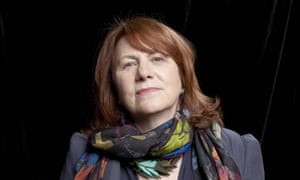
The modern novelist is caught in a contradiction, not of our own making, involving demands from the reader that are almost impossible to resolve. Why are there no black characters in your fiction, why does this novel not reflect contemporary British society? But how dare you, a white writer, appropriate the lives and stories of black people you know nothing about? Faced with a no-win situation, most white novelists accept the lesser charge of staying in their safety zone rather than be accused of getting it badly wrong. There is a true and difficult complexity to this problem that neither side fully accepts. The whole point of fiction is that you make it up, but at the same time readers have become passionate for authenticity, for hearing the truth of other voices, other lives (and for treating them, at times, like autobiography or non-fiction, the novel as learning aid, in history and geography).
It was theoretically possible for me to have had the chutzpah to travel to Jamaica and do months of research into the lives of the Windrush generation, but nothing I wrote would have the depth of reality of Andrea Levys Small Island, the novel that told the story of the women I used to see in church-going hats and pristine white gloves standing at the bus stop in Brixton. I was asked whether I thought that any non-Jewish novelist had ever really nailed a Jewish character, which implied a universality of the Jewish condition that doesnt exist, a condition of Otherness. For the talky male American Jews of Philip Roth are not the same people as the timid female Marylebone introverts of Anita Brookner. One writes out of deep knowledge of ones interior world. The something that one has to say is the thing that one knows, but married to that is intense curiosity about the lives of others about what the person sitting opposite you on the tube is thinking. The origin of fiction is telling a story, about yourself or others. In practical terms we are mostly appropriating, ruthlessly, the lives of our families and our friends, but thats not the same as cultural appropriation because it has no political freight. So in answer to the debate I dont know, I really dont know. I hope fiction gets through it alive.
Naomi Alderman
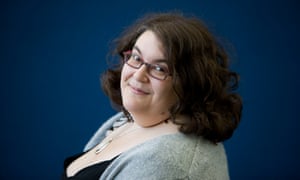
Of course fiction writers can write whatever they want, no matter their backgrounds. Ive written male characters, people older than me, people gayer than me, people who lived and died 2,000 years ago. My new novel The Power has a 21-year-old male Nigerian journalist as a viewpoint character as well as a New England politician in her 50s.
But heres the thing: you have to try to do it well. You have to be familiar with whatever tropes might apply to your character: racist, sexist, homophobic, sizeist, ableist, antisemitic and anything else. Its not OK, for example, to make your Chinese character shifty and inscrutable or your fat character stupid and lazy: you need to have learned enough to understand where these false ideas come from and why its so pernicious to replicate them. Do better. Treat your characters as human beings. Write them as people not ideas or stereotypes.
Heres another thing you need to accept that youll fail at some level, and be humble when you do. I come from the Orthodox Jewish world: I could write you an essay on the precise messages communicated by the clothing of each individual person on the Golders Green Road. I cant do the same for people in Lagos. I do my research, I work hard, and I accept that Ill get some things wrong. I hope people will point out my mistakes to me, and then Ill apologise and try to do better next time. People criticising your writing is not a violation of your freedom of speech, it is a gift freely given and should be accepted with gratitude.
And if a few people decide they only want to read books about minority groups written by members of that group, I think thats a perfectly reasonable preference. Its not one I share, but I can certainly understand why a person might feel a rule like that would broaden and deepen their reading for a time.
No one has a right to be read. No one has a right to be above criticism. When you publish a book, you enter the ring and youre going to take some punches. The sting when they hit tells you that youre where you want to be.
Philip Hensher

The only thing worth saying about the issue of cultural appropriation is that it has nothing to do with identity, and everything about quality. Good writing can do whatever it feels like doing. Bad writing cant do anything. A bad writer cant tell you anything about his or her own culture, let alone anyone elses. A really good writer can throw themself into worlds they may only have glimpsed, and light them up.
There is no point in getting much exercised about very bad writing: it puts a stop to itself in time. But any attempt to put a stop to very good writing, on the grounds of prejudice, or of extra-literary moral grounds, is deplorable because it might succeed. Not everything that deserves a hearing gets that hearing.
I dont think we should dismiss these concerns being labelled as cultural appropriation, however. There is something discreditable about a straight woman giving her obviously inadequate version of gay male relations, or a rich American arts graduate giving his researched version of the country of his great-grandfathers, or a middle-class Londoner explaining what it is like to be an impoverished Nigerian immigrant. Theres no doubt that prize juries have elevated such productions above the superior but disadvantaged accounts by gay male authors, Gujarati novelists, or that Nigerian immigrant himself. Those accounts may be lost forever.
Authors should try harder; the industry should try harder; and nobody should assume that any book has any kind of right to its own subject. It has to be earned, whether it is a matter of a straight white woman living in Devon writing about straight white women living in Devon, or a gay man living in Switzerland in 2012 writing about a Bengali family in Dhaka in the 1970s. I see no reason why writers should assume that any territory is theirs by inheritance. The key point is that as few extra-literary concerns as possible should stand in the way of good writers not the claim that no one should ever write about experience not their own, nor the sustenance of ancient privileges of race, education, sexuality and class.
Anyone proposing to use cultural appropriation as a taboo for writers is taking action against Kim, Salammb, The Grass Is Singing, A Bend in the River, The Infernal Desire Machines of Doctor Hoffman. Putting a kybosh on their future equivalents, too.
Maggie Gee
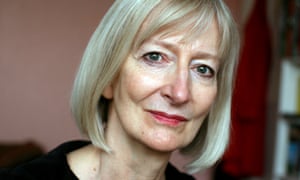
I thought this debate about which categories of human beings are free to write novels about which other categories of human beings had peaked about a decade ago, ending in a decisive no boundaries vote. But no, the old argument is back.
Actually its OK that its back, because its a serious debate that cant just be shrugged off. Writers are lucky bastards. We have the invaluable chance to make our versions of reality public, and when these versions seem false to other people who dont have the same chance, its fair for us to take their point to heart.
Why do writers write novels? On one level to have fun and feel free; but on another, to explore, to discover. One of the things we most enjoy exploring is other peoples inner worlds, and so we make characters. Every character is in a way an invention, so a lie; in another way, every character contains part of ourselves, but they also lead us down the mysterious passage to another life we long to understand. We feel our way into our characters until, effectively, we are them as we write them. This is very like the definition of empathy, or its German origin word, einfhlung, feeling our way into another. All of us in some way are trying to understand, trying to see what we hold in common. We want to avoid building a narrow fictional world peopled with characters who are vain mirror-images of ourselves, so we walk the mile of the novel in a variety of different characters shoes. But living through a fictional character is never as good as knowing actual joy or love, and never as bad as suffering actual pain or discrimination. With the freedom to inhabit different others, therefore, comes a price. The price is humility about what we know, a willingness to show our characters to their models and hear the critical comments they make.
Two of my novels, the political comedies My Cleaner and My Driver, had a Ugandan central character, Mary Tendo, often written in the first person. I started writing the pair of novels in Uganda and surrounded by Ugandans, but of course I was not Ugandan. When I finished, back in the UK, I showed them to writer friends I had made in Uganda, Hilda Twongyeirwe and Jackee Batanda. They critiqued my work at length, and I listened. I feel an ongoing commitment to the Ugandan Women Writers Association they belong to, Femrite, of which I am one of two external members.
I am just off to the Calpe conference on Gibraltars Neanderthals. They are the heroes of my next novel. I have 3% Neanderthal DNA, which is quite high, but thats not the point. I believe Neanderthals are essentially like us, like me, but only by learning about how they lived, and who they were, can I make others believe that too.
Nikesh Shukla
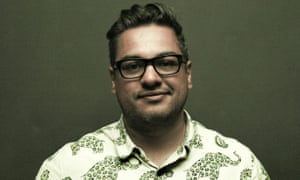
Here are some tips for writing the other. Do your research. Do it properly. Make sure someone from the other community reads your work before it gets read by someone with publishing power. Especially if the person with publishing power isnt from that community. Dont get defensive if people tell you that you got it wrong. Dont think you can hide behind its fiction and I can do what I want because that tends to err on the side of fetishisation. I think we have the right to tell stories that are different from our own backgrounds, heritages, races, if we do them responsibly. I dont know why this is a hard thing to understand. Also, ask yourself: why am I telling this story? Why are there no stories out there written by people from that community? Did I find it easier to write about this because I filtered it through a white gaze and thus made it palatable for a largely white publishing industry? And most of all, and this bears repeating, dont get defensive. Because you may be making a larger conversation about marginalised communities, and their ability to tell their own stories in their own voices, all about yourself.